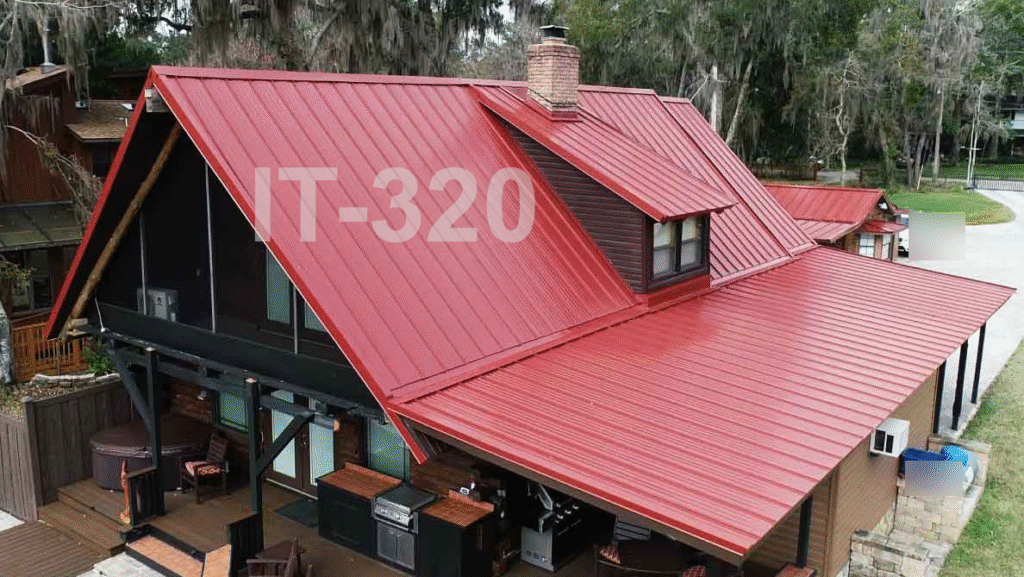Metal Roof vs. Asphalt Shingles: Benefits and Risks Compared
Metal Roofing vs. Asphalt Shingles: Which Is Right for Your Home?
When it’s time to replace or install a new roof, one of the most important decisions you’ll make is choosing the right material. Two of the most popular options for residential roofing are metal and asphalt shingles. Each material has its own strengths and limitations, and the best choice depends on your budget, goals, and the specific needs of your home. In this article, we’ll break down the key differences between metal roofing and asphalt shingles to help you make a confident, informed decision.

Durability and Lifespan
Metal roofing is known for its exceptional durability. Depending on the type of metal used—such as steel, aluminum, or copper—these roofs can last between 40 to 70 years. They’re highly resistant to cracking, warping, and severe weather conditions, including wind, hail, and snow.
Asphalt shingles, on the other hand, typically last 20 to 30 years. While they’re also durable, they’re more prone to damage from extreme heat or high winds. If you’re looking for a roof that offers long-term performance with minimal wear, metal might be the better choice.
Cost and Affordability
Asphalt shingles win when it comes to initial cost. They are generally less expensive to purchase and install, making them a top choice for homeowners on a tight budget. Labor is also more affordable due to the simplicity and speed of installation.
Metal roofs require a higher upfront investment, with material and labor costs being significantly greater. However, the long lifespan and energy savings often balance out the initial expense over time. Think of it as paying more upfront for a product that lasts longer and costs less in upkeep.
Aesthetics and Style Options
Both roofing types come in a range of styles, but they offer very different aesthetics. Asphalt shingles are available in a wide variety of colors and patterns, allowing homeowners to match nearly any exterior design. They have a traditional, textured look that blends well in most neighborhoods.
Metal roofs provide a modern, sleek appearance, and come in panels, tiles, and even shingle styles. While they may not be for everyone, metal can give your home a contemporary edge or a rustic charm, depending on the finish. Some homeowners even choose metal roofing that mimics the appearance of wood or slate for a high-end look.
Maintenance Requirements
Metal roofs are generally low-maintenance. Because they are resistant to mold, mildew, and insect damage, they require fewer repairs over time. Periodic inspections and clearing of debris are usually enough to keep them in great shape.
Asphalt shingles may need more frequent attention. They can curl, crack, or lose granules over time, especially in areas with high temperature fluctuations. While repairs are usually straightforward, they can add up if the roof experiences repeated damage.
Energy Efficiency
Metal roofing has excellent reflective properties. It reflects sunlight rather than absorbing it, which can significantly reduce cooling costs in the summer. Many metal roofs are also coated with energy-efficient finishes that enhance their performance.
Asphalt shingles absorb more heat, which can make your home warmer in hot weather. However, modern shingle technology has introduced reflective coatings to help counter this issue. If energy efficiency is a major concern, metal generally has the upper hand.
Environmental Impact
Metal roofing is one of the most eco-friendly options on the market. Most metal roofs contain a high percentage of recycled material and are 100% recyclable at the end of their lifespan. They’re a great choice for homeowners looking to reduce their environmental footprint.
Asphalt shingles are less sustainable by comparison. While some recycling programs do exist, many old shingles still end up in landfills. Additionally, they require petroleum in the manufacturing process, which increases their environmental impact.
Noise and Insulation
One common concern with metal roofing is noise during heavy rain or hail. However, with proper insulation and underlayment, this issue can be greatly minimized. In fact, many modern metal roofing systems are designed with sound-deadening features.
Asphalt shingles naturally absorb more sound due to their composition. If your home already has good insulation, noise won’t be a major factor either way. Still, if you’re sensitive to noise and don’t plan on upgrading insulation, asphalt may be the quieter choice.
Installation Time and Complexity
Asphalt shingle installation is relatively quick and straightforward. Most roofing crews can complete a standard job in a few days, making it a convenient option for urgent projects.
Metal roofing takes more time and precision to install correctly. The panels or tiles must be measured and secured carefully to avoid leaks or future issues. While installation takes longer, the payoff is a roof that requires less maintenance and lasts decades longer.
Final Thoughts
Both metal and asphalt shingles have a lot to offer. Asphalt shingles are affordable, widely available, and easy to install—making them a go-to for many homeowners. Metal roofs, while more expensive up front, offer unmatched durability, energy efficiency, and a modern look that can boost your home’s value.
At A1 Roofing, we help homeowners throughout the Chicago area find the perfect roofing solution for their needs. Whether you lean toward the tried-and-true asphalt shingle or the long-term investment of a metal roof, our expert team is here to guide you every step of the way. Ready to explore your options? Contact us today for a free consultation.